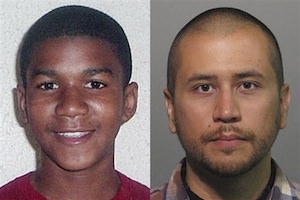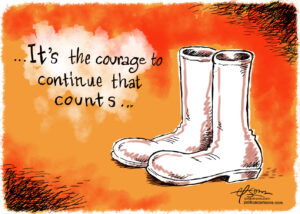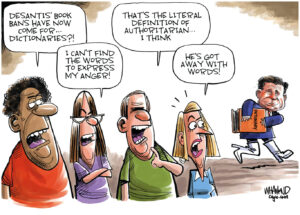A Big Tragedy and a Big Story: Race, Guns and Television
What happened in the killing of Trayvon Martin was a crime and the acquitted shooter, George Zimmerman, is no role model for anyone. I have no basis for judging him racist, but there is no doubt he was aggressively stupid. But for me, the moronic vigilante killer is not the issue. I think this story is about guns and television.
In 1831, Alexis de Tocqueville, the young Frenchman traveling in the United States to research what many think is still the best book on America and Americans, was seated next to former President John Quincy Adams at a dinner in Boston. They talked:
Adams: There are two facts which have had a great influence on our character. In the North, the political and religious doctrines of the founders of New England; in the South, slavery. Tocqueville: Do you look on slavery as a great plague for the United States?
Adams: Yes, certainly. That is the root of almost all the troubles of the present and the fears for the future.
The question did not come out of the blue. The Frenchman had already seen enough interaction between the races (including American Indians) to understand the depths and fears of American racism. In writing his great work, “Democracy in America,” he concluded that there were three possible endings to the American tragedy: intermarriage, deportation or mass murder.
We actually have done better than he thought we would. I was struck by one of Attorney General Eric Holder’s comments, in a speech to the NAACP last Tuesday on the George Zimmerman-Trayvon Martin case in Florida. Talking about his son and the fears of African-American fathers for their teenage sons, Holder, an African-American, said: “I am his father and it is my responsibility, not to burden him with the baggage of eras long gone, but to make him aware of the world he must still confront. This is a sad reality in a nation that is changing for the better in so many ways.”
I also agree with the commentary of Lawrence Bobo, head of the Department of African and African-American Studies at Harvard University:
“The most elemental facts of this case will never change. A teenager went out to buy Skittles and iced tea. At some point, he was confronted by a man with a gun who killed him. There is no universe I understand where this can be declared a noncriminal act. Not in a sane, just and racism-free universe.”
What happened was a crime and the acquitted shooter, Zimmerman, is no role model for anyone. I have no basis for judging him racist, but there is no doubt he was aggressively stupid.
But for me, the moronic vigilante killer is not the issue. I think this story is about guns and television. Florida is a swampy place and so are its laws. It is ludicrous to permit and empower a civilian like Zimmerman to legally go around with a concealed weapon, following or stalking anyone he decides or imagines is a danger to his community. Circumstances like that are the reason we have laws, courts and police.
And television. I know a bit about television in courtrooms, which I thought was a bad idea from the start. In 1978, I wrote and narrated a PBS documentary called “TV on Trial” about what I believe was the first televised trial — in Miami. The defendant was a kid named Ronny Zamora, who killed an 83-year-old neighbor in a botched burglary in her home. He was convicted and sentenced to life in prison. (He was released on parole in 2004.)
The Zamora case, like the Zimmerman case, was a story, a big story, not because it was an unusual trial, but because of cameras in the courtroom. The television press, particularly the 24-hour news channels now, could not ignore it. The video feed was a real reality show. It was irresistible and dangerous television wallpaper, guaranteed to fan the ever-smoldering racial coals of the nation.
Back to guns. My father was a political conservative, a hunter and a criminal court judge in New Jersey. He was for gun control because, as he told me many times, in disputes that escalate into violence, someone inevitably reaches for the deadliest weapon available, from fists to clubs to knives to guns. If there’s a gun and someone uses it, death is likely. It’s hard to kill with your hands or knives. People fight back. If they have guns, they use them.
He was right, then and now.
© 2013 UNIVERSAL UCLICK
Your support matters…Independent journalism is under threat and overshadowed by heavily funded mainstream media.
You can help level the playing field. Become a member.
Your tax-deductible contribution keeps us digging beneath the headlines to give you thought-provoking, investigative reporting and analysis that unearths what's really happening- without compromise.
Give today to support our courageous, independent journalists.






You need to be a supporter to comment.
There are currently no responses to this article.
Be the first to respond.